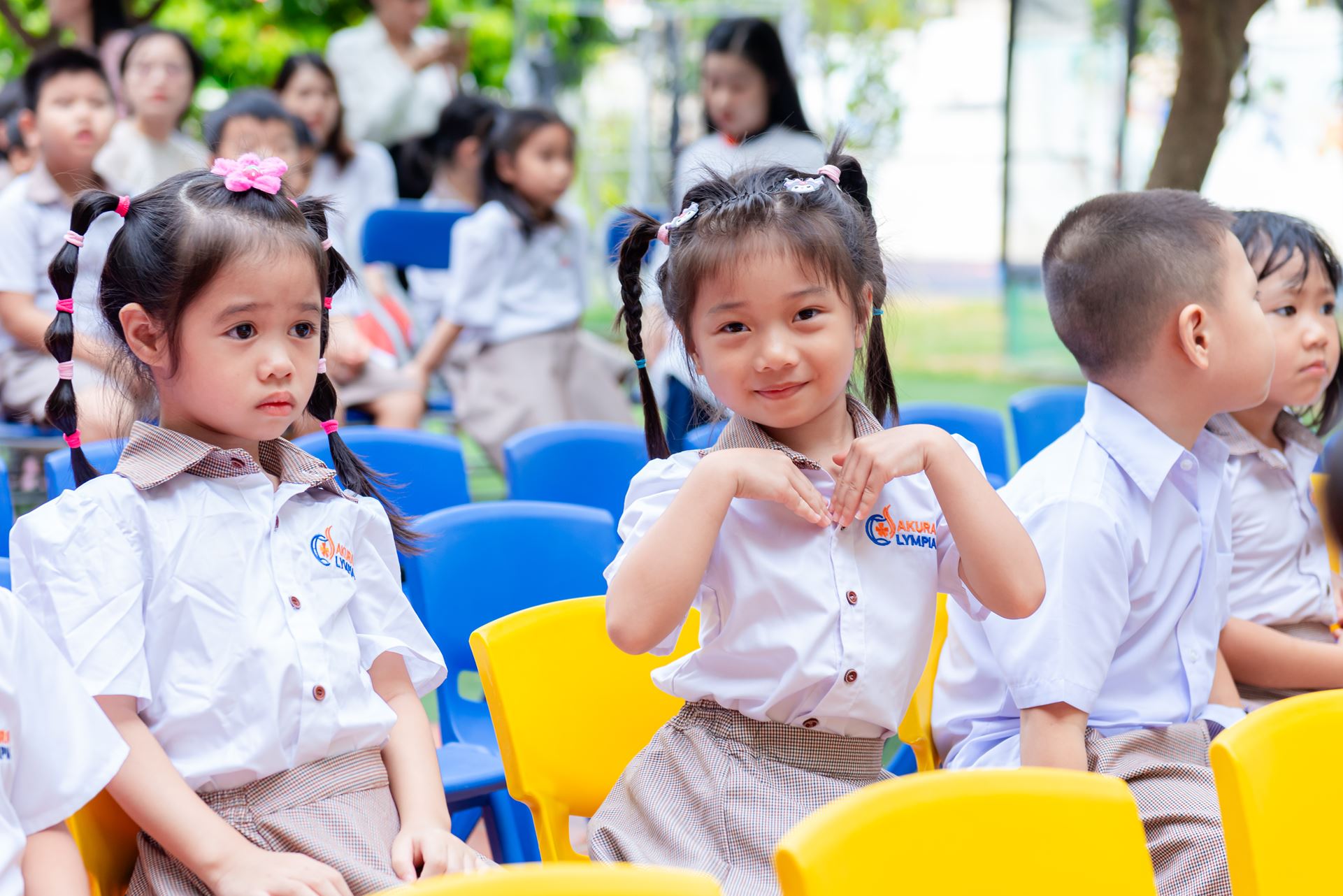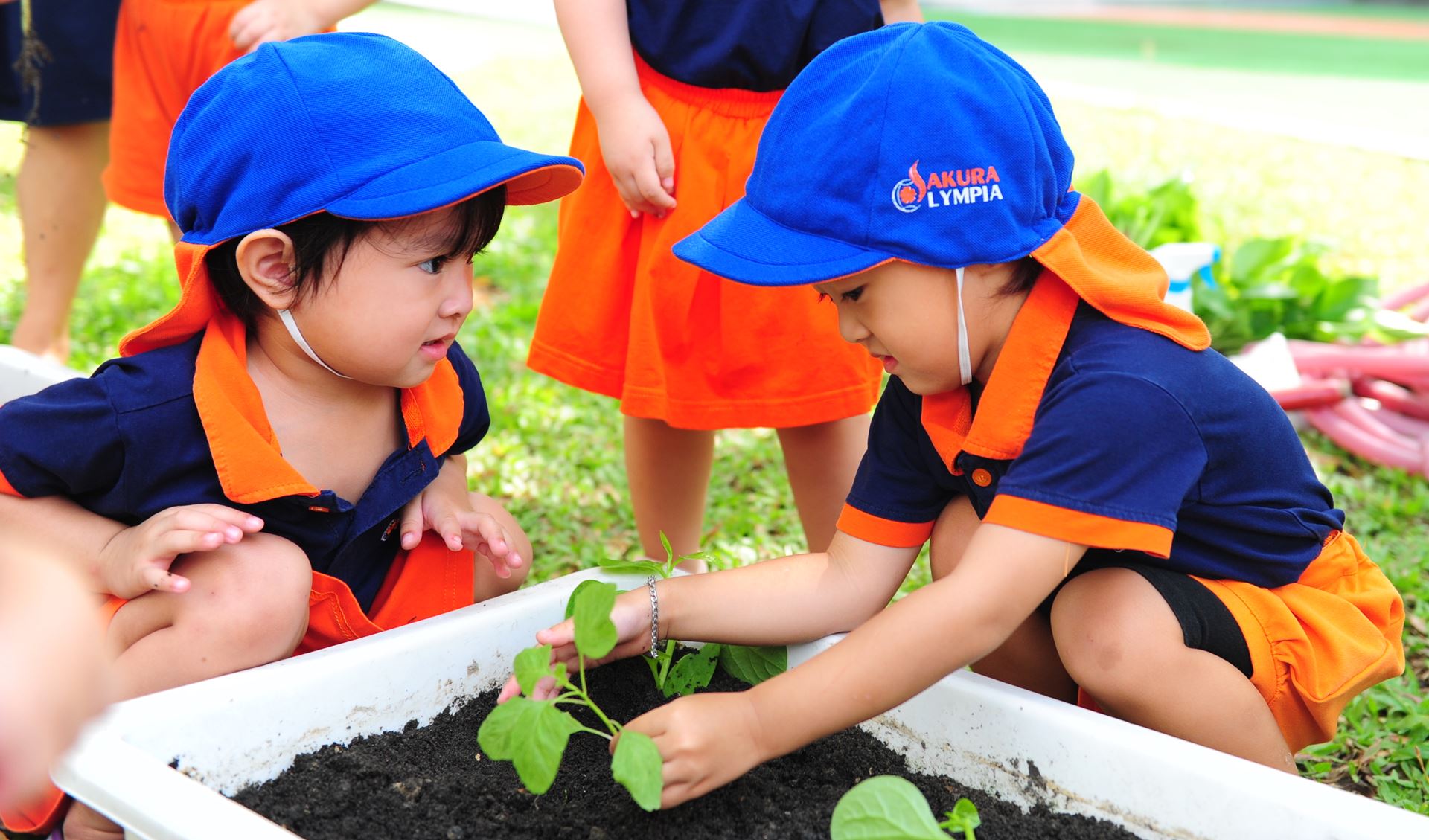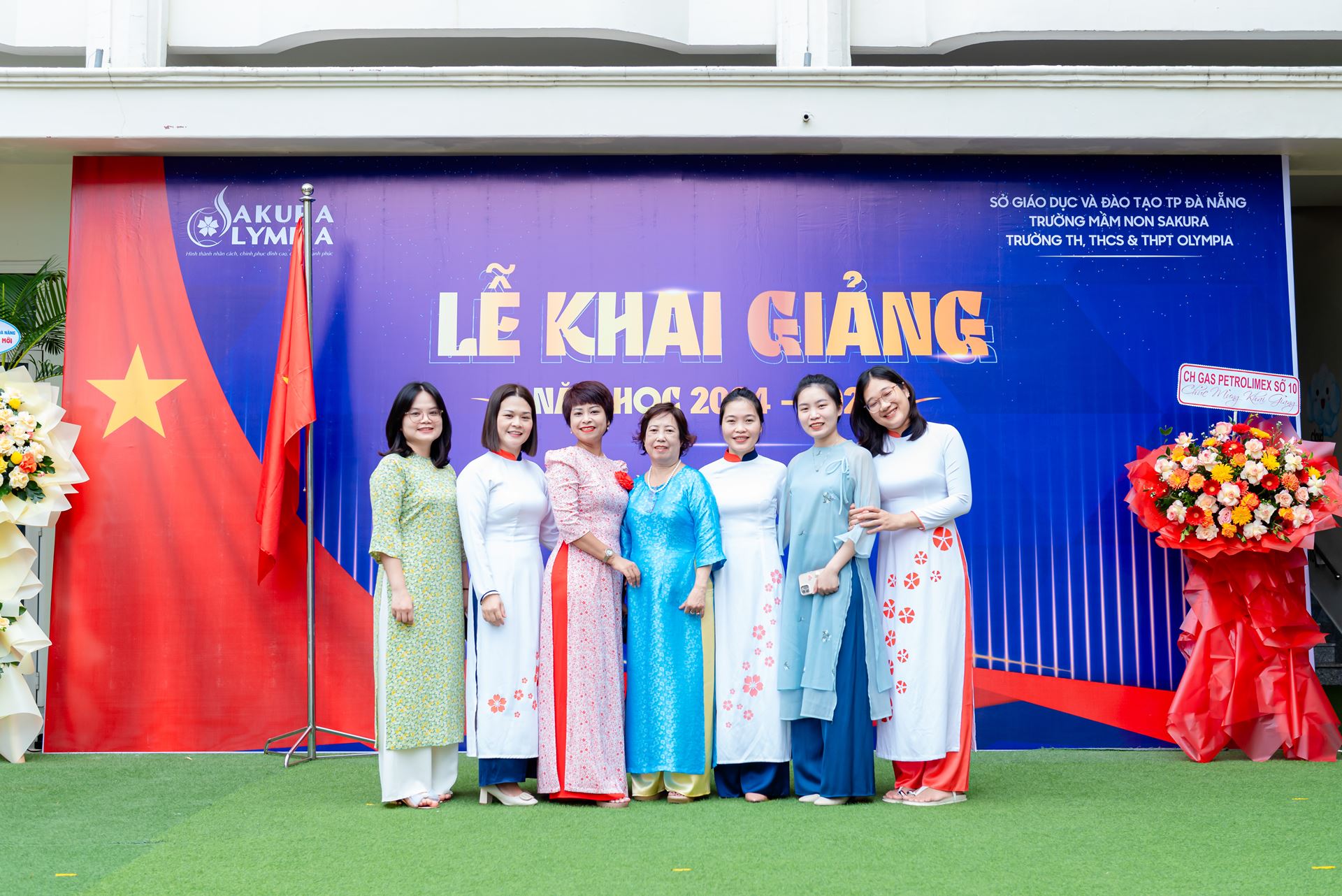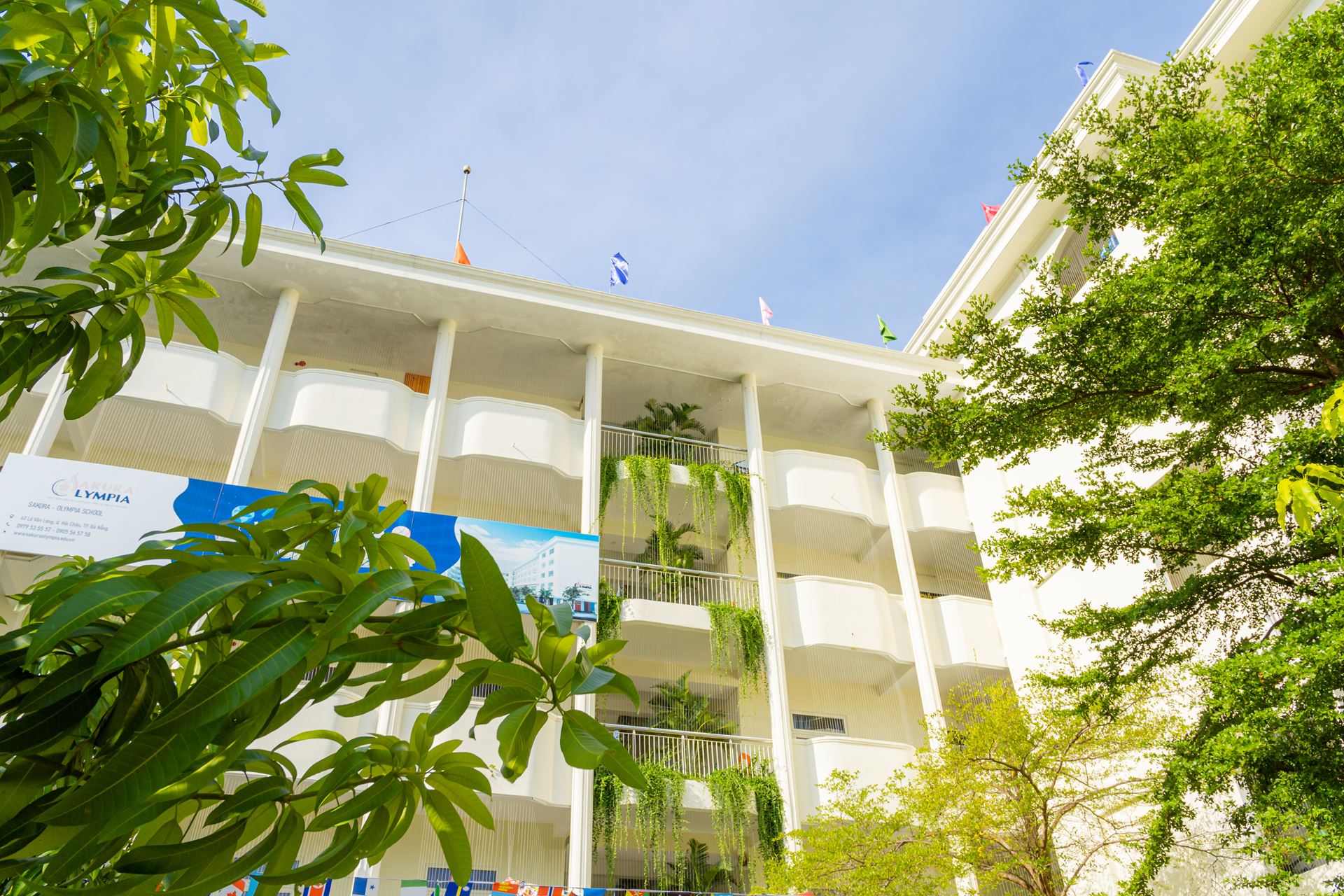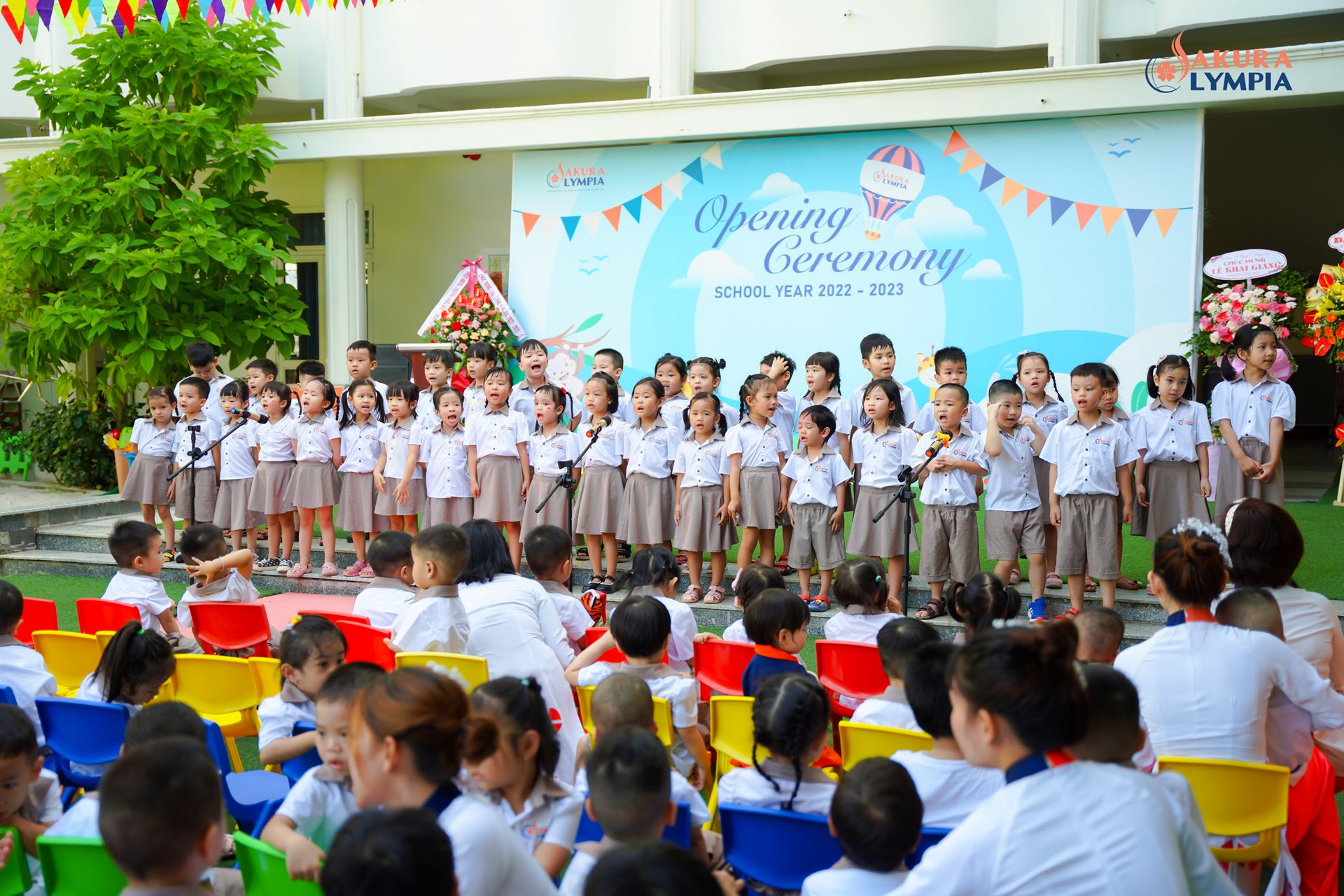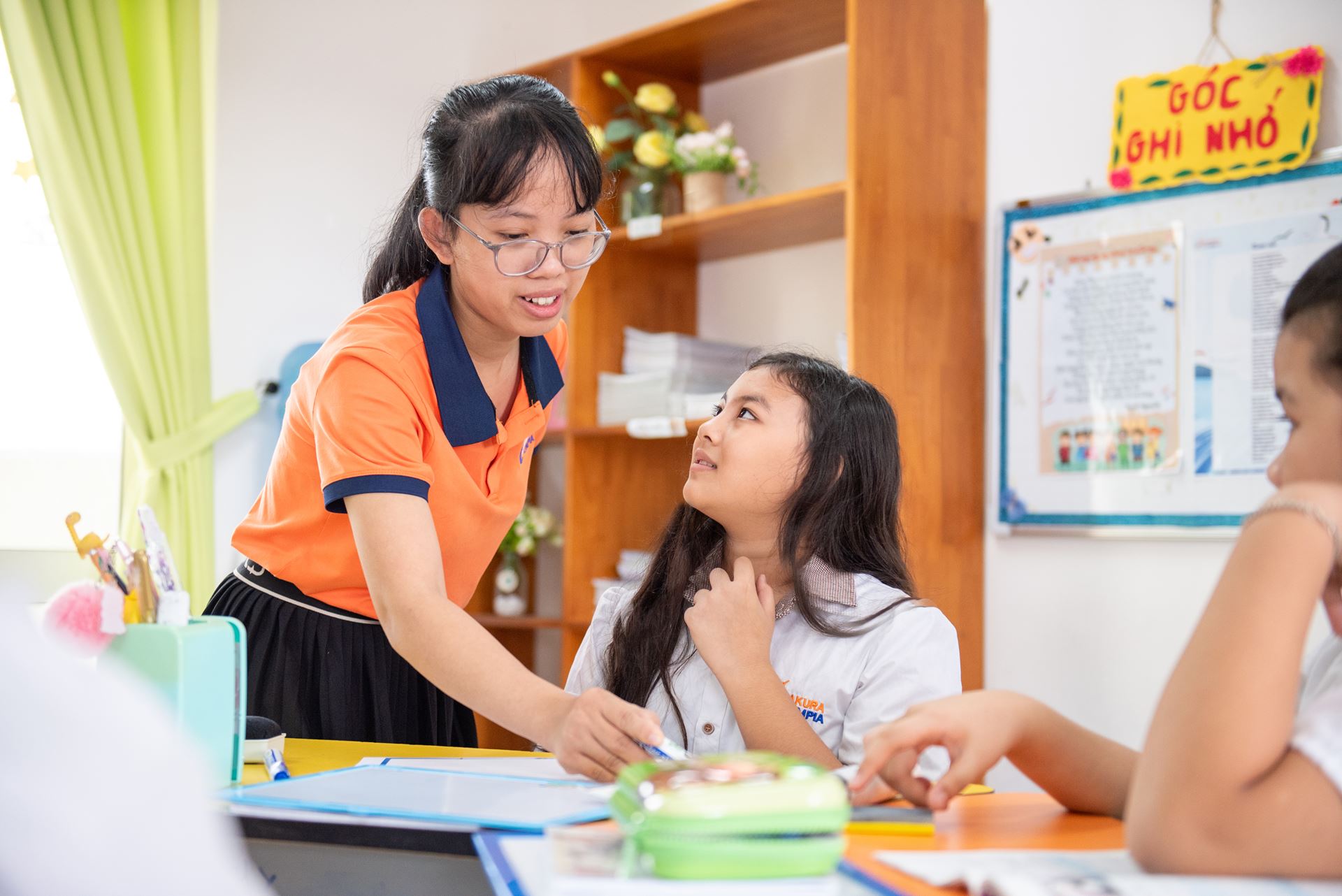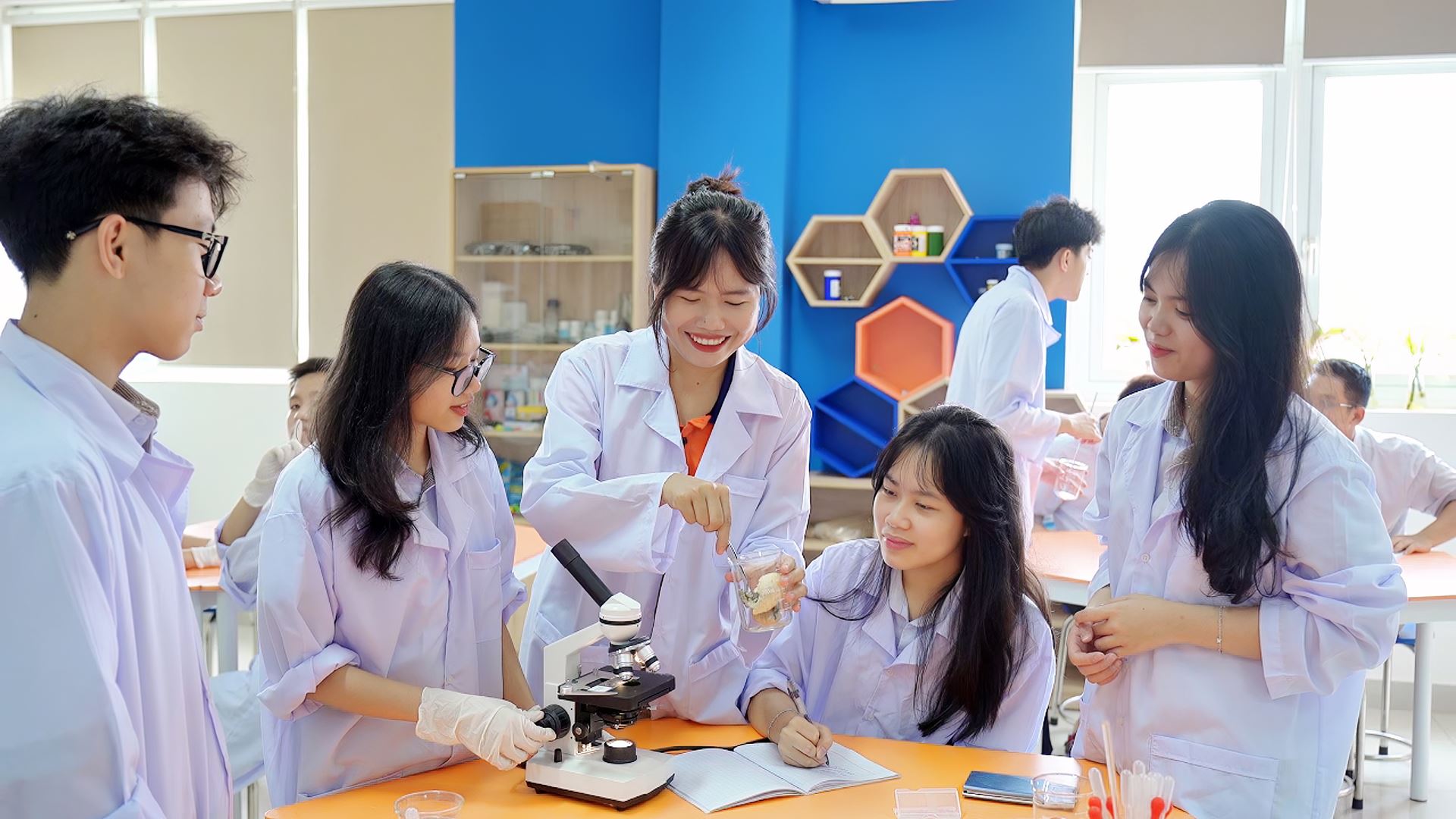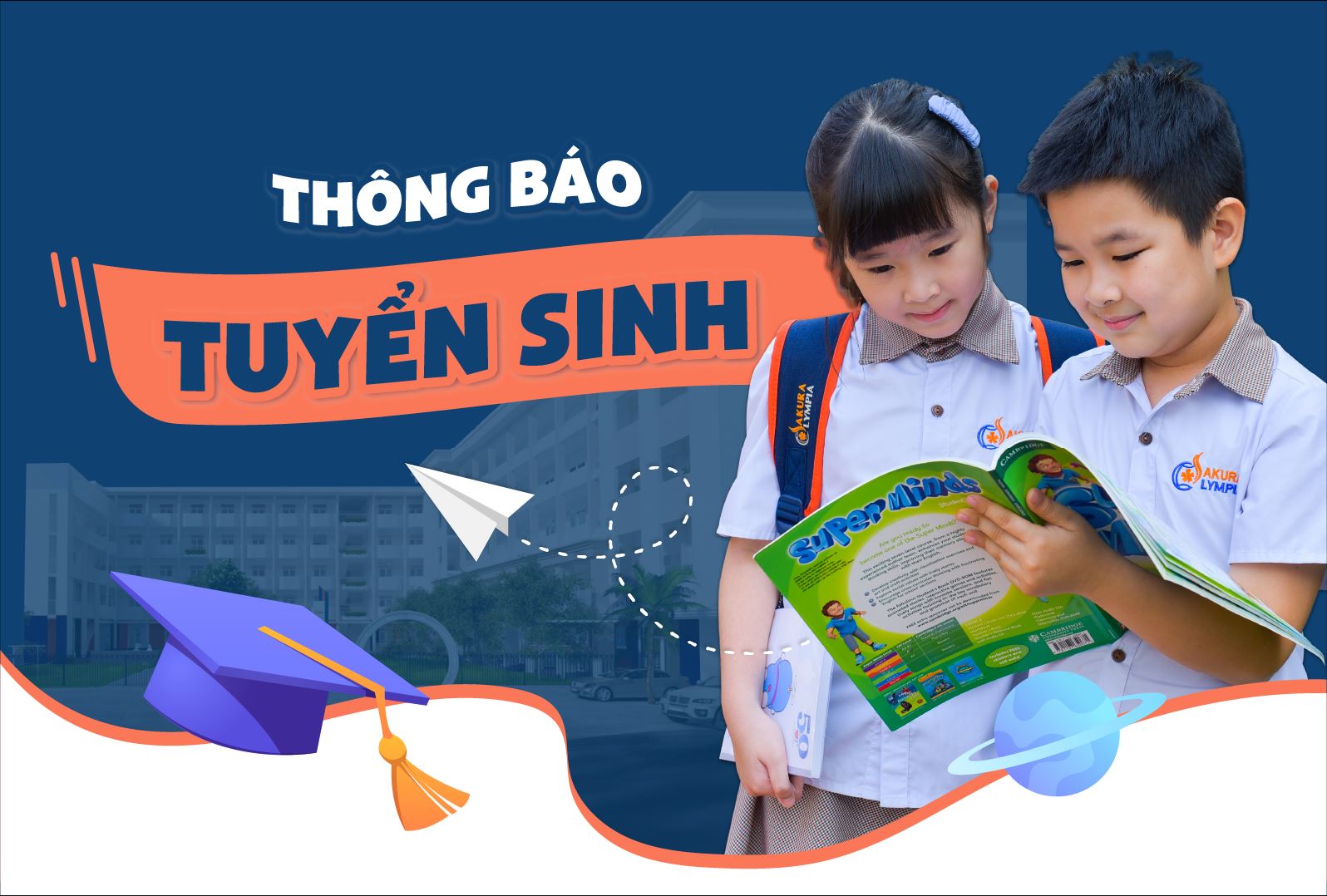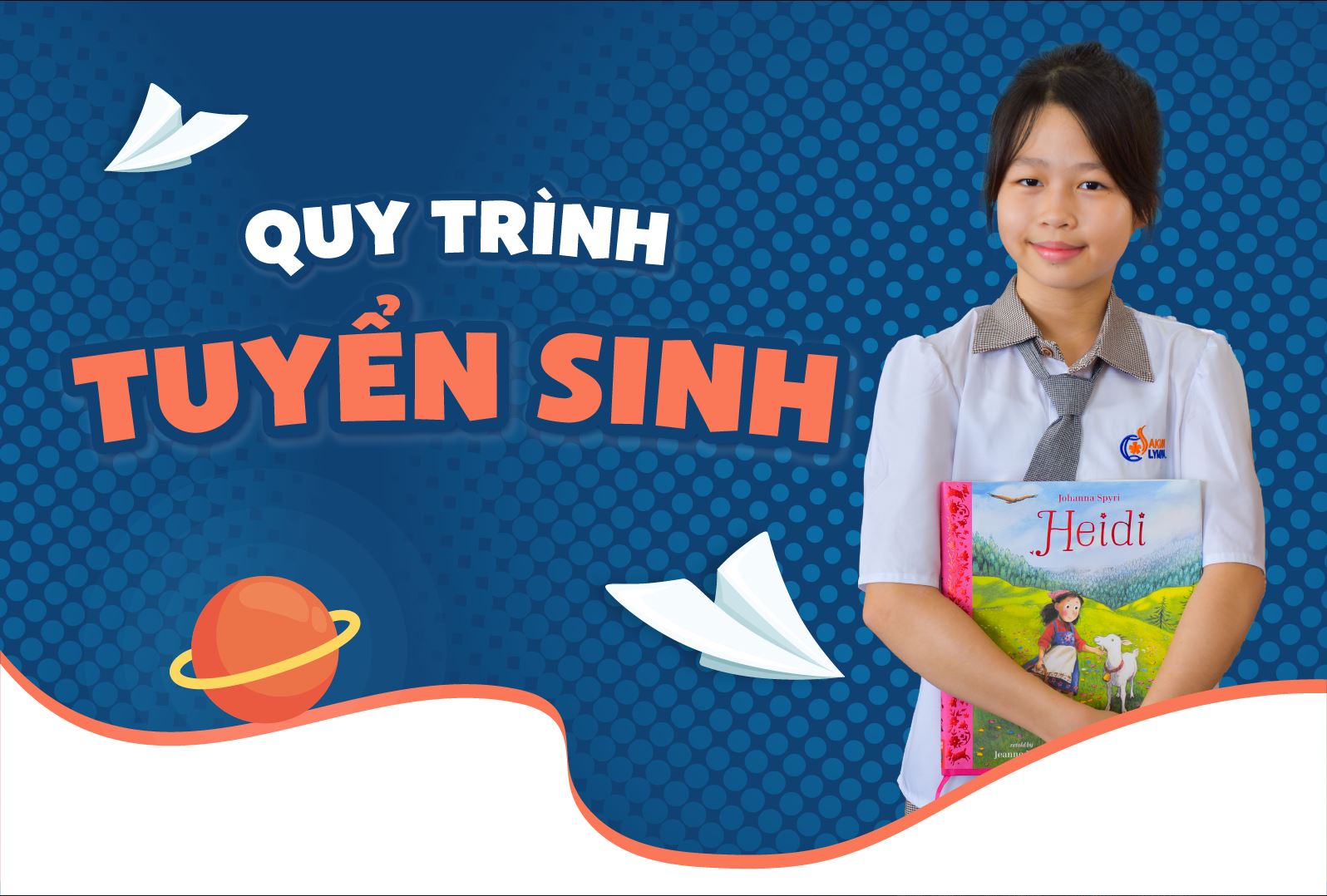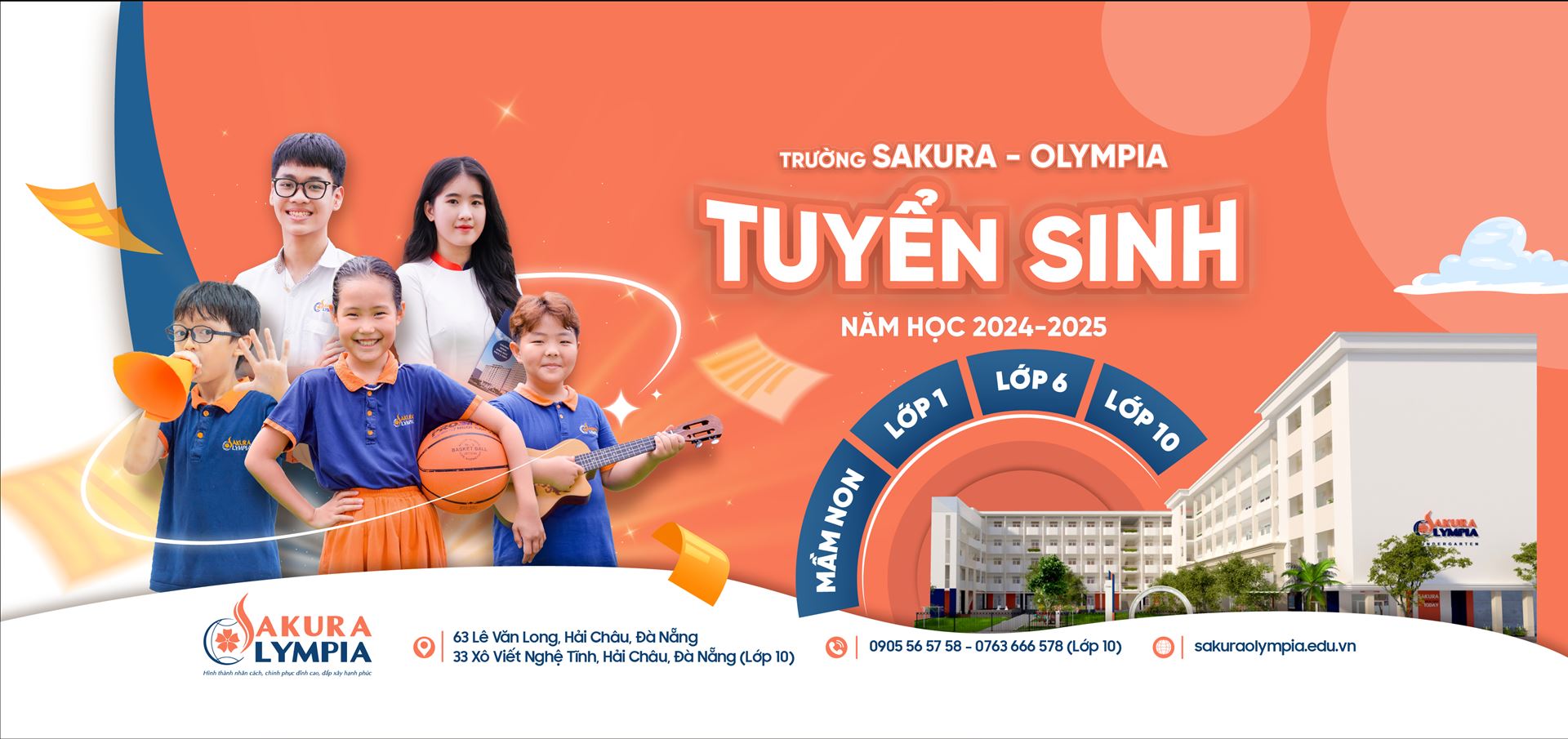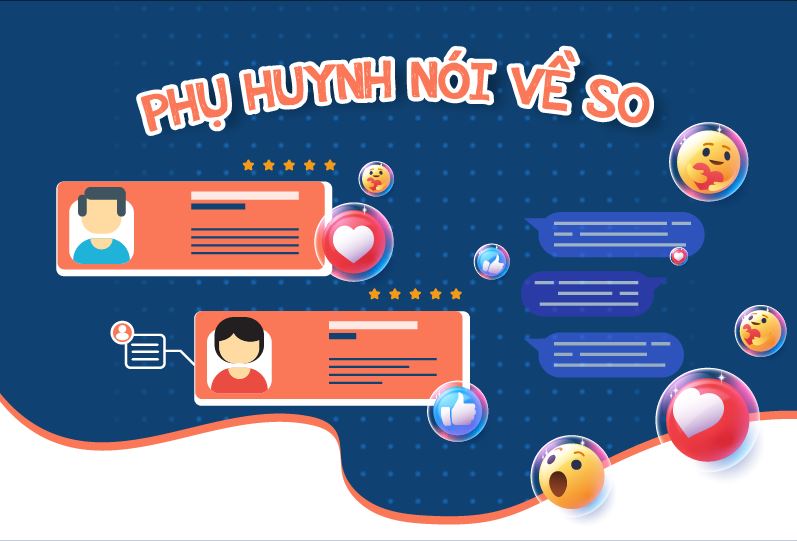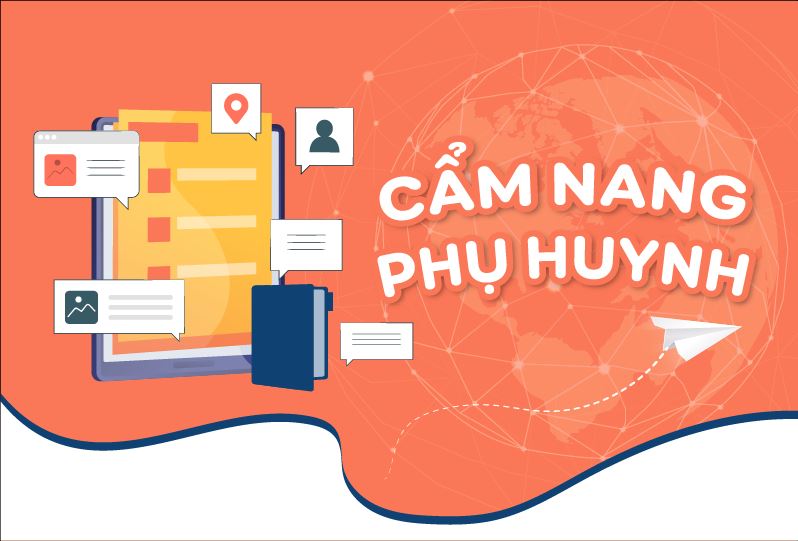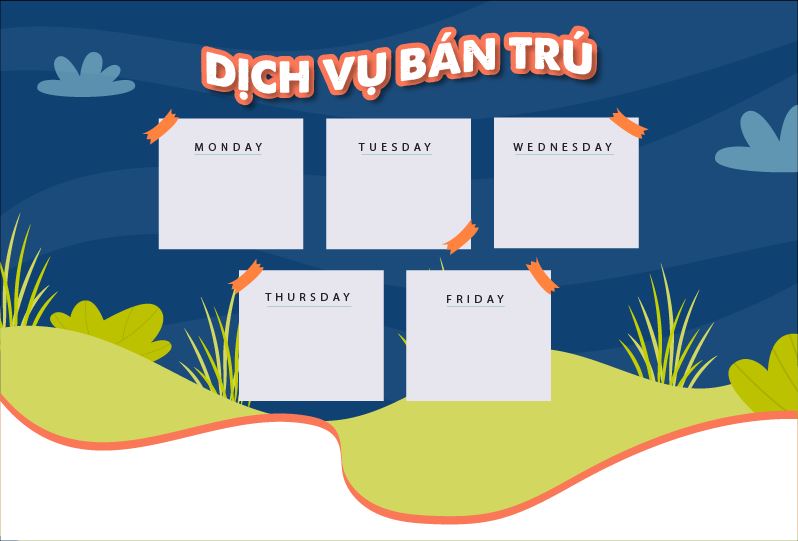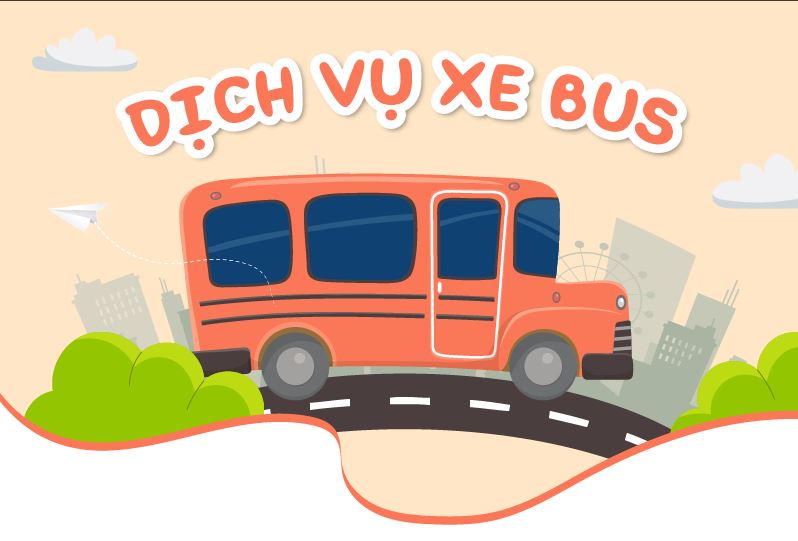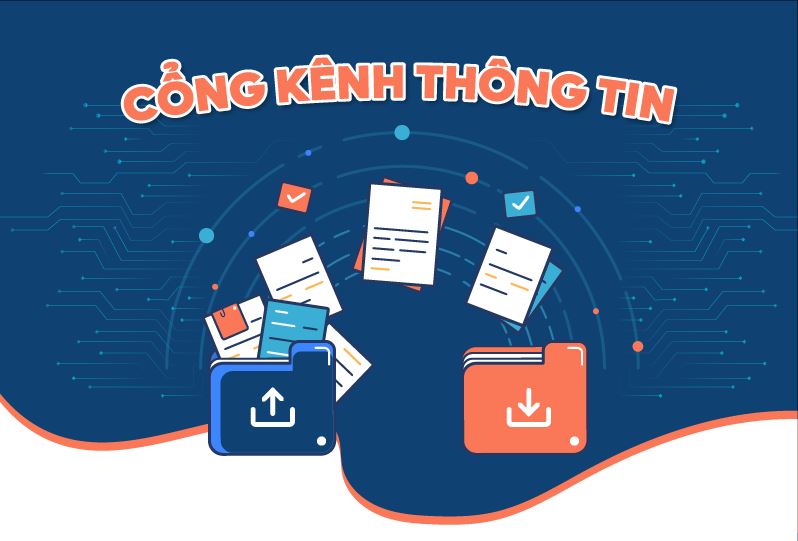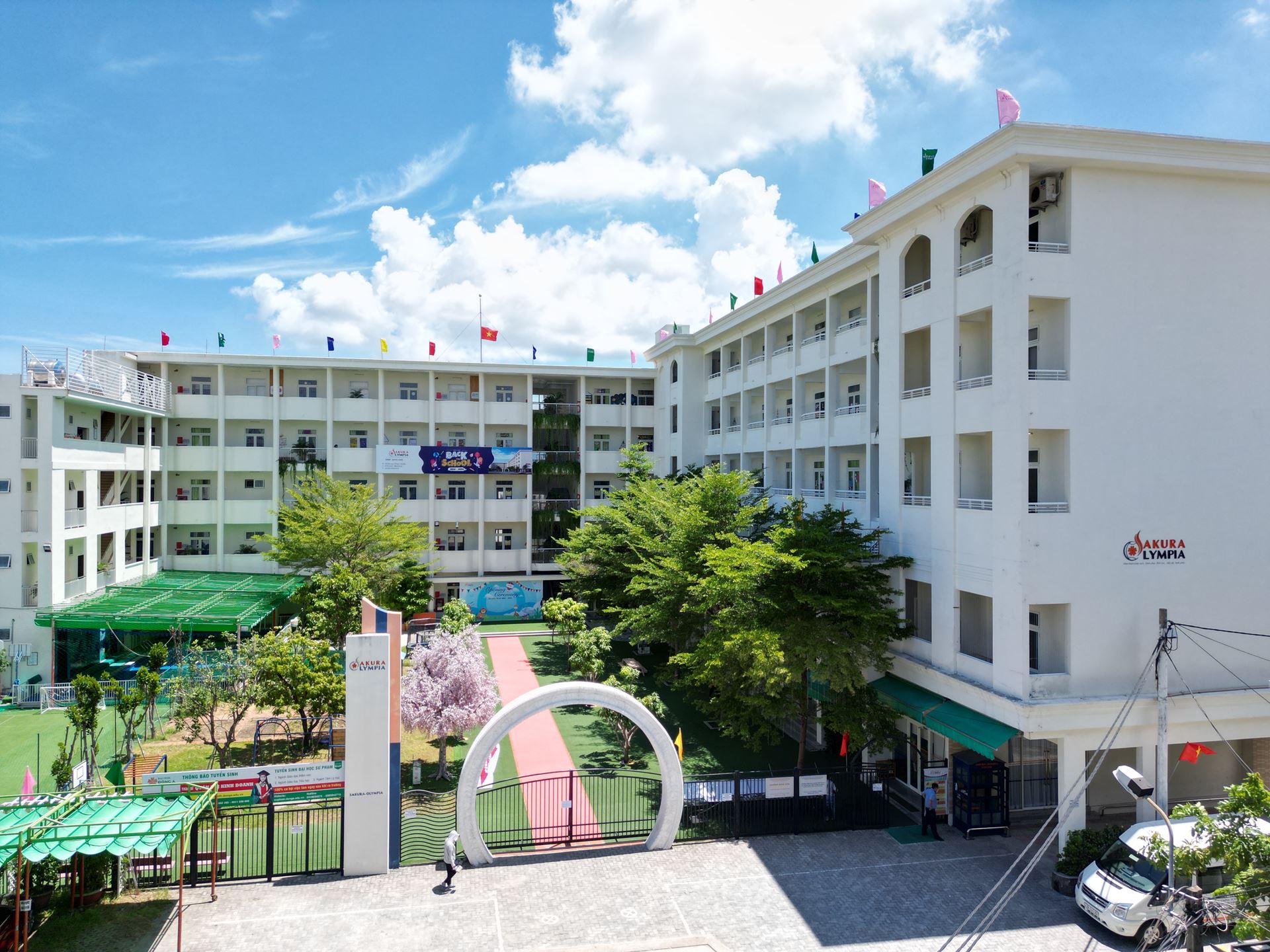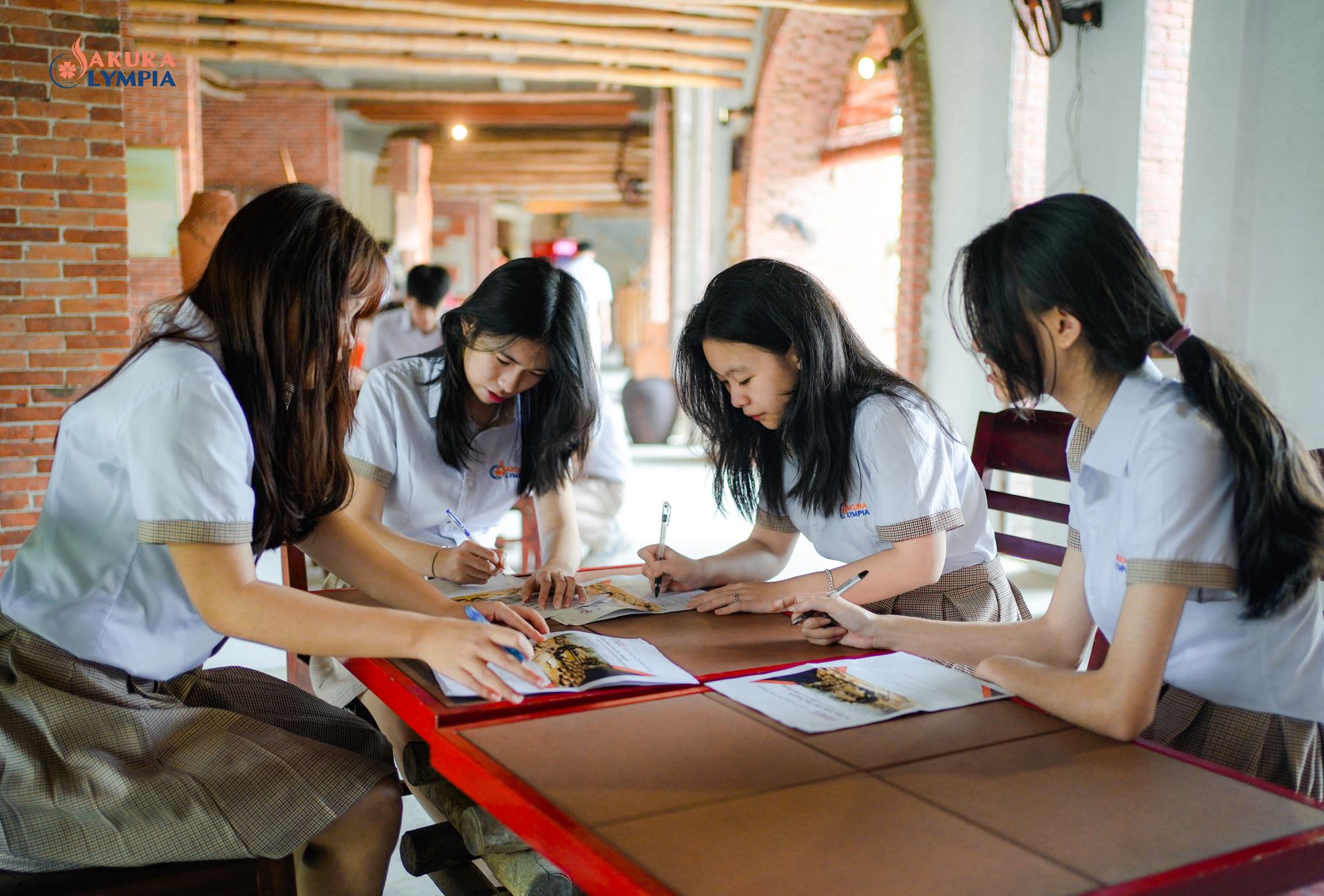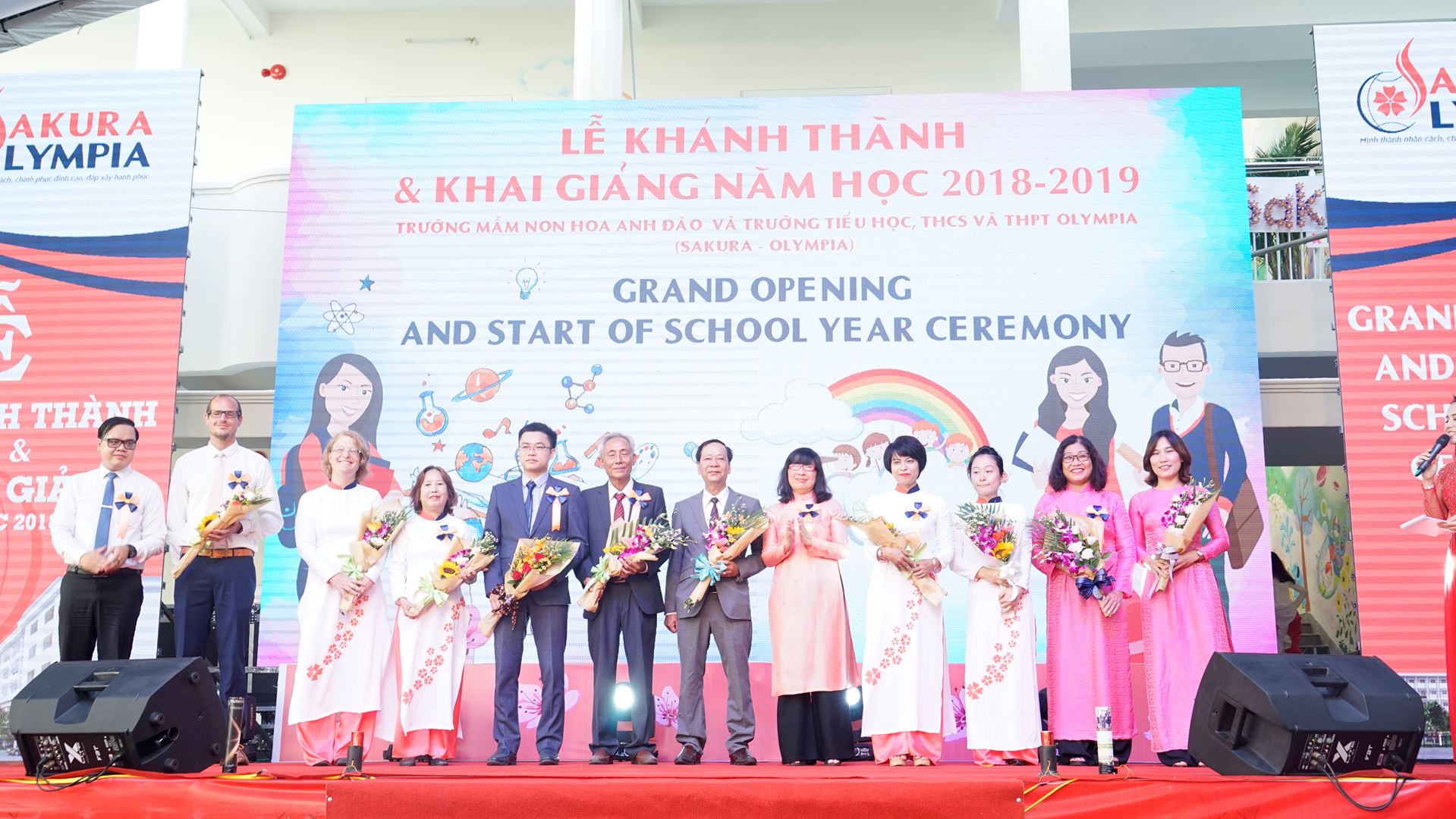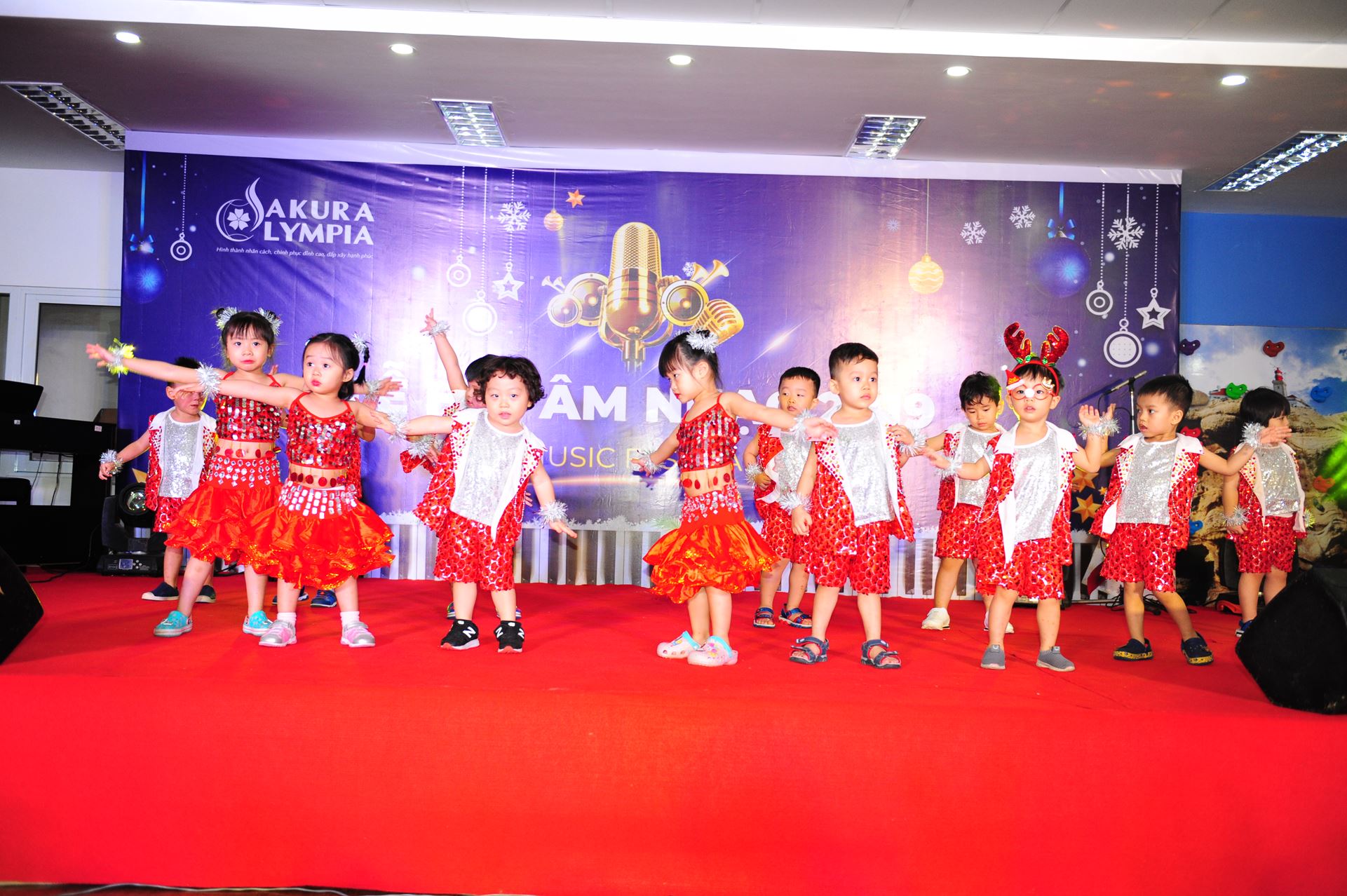SPECIALIZED UPPER SECONDARY PROGRAMME
Date Submitted: 06/02/2023
At Sakura – Olympia, the Specialized Upper Secondary Programme emphasizes hands-on learning, skill development, and personalized pathways to prepare students comprehensively for their future.
This program is built upon Vietnam’s General Education Curriculum 2018, enhanced with extended practical learning and the school’s in-house curriculum. It offers students a personalized academic journey tailored to their goals and strengths.

1. WHY CHOOSE SAKURA – OLYMPIA’S SPECIALIZED UPPER SECONDARY PROGRAM?
Enhanced English Proficiency
Students are supported to achieve CEFR Level B2, equivalent to IELTS 5.5–6.0 or TOEFL iBT 60–78, ensuring their ability to communicate and study effectively in international environments.
21st-Century Skill Development
The program integrates The 4Cs—Critical Thinking, Communication, Collaboration, and Creativity—into academic and extracurricular activities, preparing students to thrive and stand out in a dynamic world.
Core Value Integration: Character – Well-being – Knowledge
Through a well-rounded education that includes moral education, sports, arts, and talent development, students grow in character, intellect, and physical health.
Personalized Learning Pathways
A flexible curriculum tailored to each student’s strengths and interests allows for optimized personal development and academic success.
Technology Integration
Modern educational technologies are embedded in teaching and learning, empowering students with essential digital skills for the future.
Mental Wellness & Emotional Education
A safe and supportive environment helps students manage emotions, reduce stress, and build social skills through counseling and emotional education programs.
Career Guidance & Future Readiness
Students receive comprehensive career orientation through real-world experiences, expert mentoring, and soft skills training—equipping them for academic and professional success.
2. INNOVATIVE LEARNING ENVIRONMENT & U.S. EDUCATION MODEL
At Sakura – Olympia, we cultivate a modern and creative learning environment where students are encouraged to unleash their imagination, solve problems, and innovate in both academics and life through:
- Subject-specific classrooms are designed under the U.S. Education Model to optimize learning experiences for each subject area.
- Flexible learning spaces, featuring open areas with movable furniture and creative tools that foster collaboration and exploration.
- Academic competitions are modeled after international contests to motivate knowledge application and intellectual engagement.
- Creative events such as Hackathons, Robotics tournaments, and Entrepreneurship projects where students tackle real-world problems with innovative solutions.

Key Benefits of the U.S. Education Model at Sakura – Olympia:
- Specialization and real-world application: Classrooms are tailored to each subject and fully equipped to enhance practical learning and real-life experience.
- Inspiration and creativity: Dynamic and flexible spaces ignite students' passion for learning and fuel creative thinking.
- Comprehensive development: The model supports holistic student growth—building academic knowledge and essential soft skills for the 21st century.
3. DEDICATED & HIGHLY QUALIFIED EDUCATORS
At Sakura – Olympia, our teacher recruitment and training process is carefully designed to ensure a team of passionate and qualified educators. All teachers hold a university degree or higher, with strong academic records, relevant teaching experience, and—most importantly—a genuine love for children and a deep dedication to education.

Vietnamese teachers who are university graduates, enthusiastic, and devoted to nurturing young minds.

International teachers with strong professional backgrounds and expertise in their subject areas.
At Sakura – Olympia, educators thrive in a dynamic and supportive environment where they are encouraged to grow and lead by example. Our teachers are:
- Professionally qualified and knowledgeable
- Role models in ethics and character
- Confident, youthful, and passionate
- Lifelong learners committed to self-improvement
- Caring and compassionate toward students
- Deeply devoted to their profession
We believe that great teachers inspire great futures.
4. EDUCATIONAL PROGRAM
4.1. Enhanced English Program

The Enhanced English Program is aligned with CEFR Level B2 standards, aiming to develop students’ proficiency across all four language skills: listening, speaking, reading, and writing. By Grade 12, students are expected to use English fluently in everyday communication, academic settings, and professional contexts—preparing them for global integration.
- Native-speaking teachers: Students receive 4 lessons per week with native English teachers, focusing on communication and accurate pronunciation.
- Structured IELTS preparation: Starting from Grade 10, students are introduced to the IELTS test format. By Grades 11 and 12, targeted practice helps strengthen weaker skills and build confidence.
- Effortless English methodology: Incorporates AJ Hoge’s approach, emphasizing natural learning through repetition and listening to ensure long-term retention.
- Technology-integrated learning: Platforms like Microsoft Teams and OneNote are used for assignment submissions and progress tracking.
- English clubs and speaking activities: Regular discussion and public speaking sessions provide an immersive environment for practical language use.
- Regular assessment and personalized feedback: Bi-monthly skill evaluations allow for close monitoring of student progress, with individual feedback to refine and personalize learning paths.
4.2. 21st Century Skills Development Program
The 21st Century Skills Development Program aims to foster students’ growth through the 4Cs model—Critical Thinking, Communication, Collaboration, and Creativity, with the addition of Leadership. These skills are cultivated through project-based learning and extracurricular activities, empowering students to adapt to a rapidly changing world and take on leadership roles in academic and social settings.
Collaboration
Students build teamwork skills through hands-on projects, learning how to listen actively, share ideas, and respect individual differences. Collaborative learning encourages effective problem-solving and strengthens their ability to work well with others.
Communication
Public speaking, debate, and hosting events are core components that help students articulate their thoughts clearly and persuasively. These experiences also develop empathetic listening and inspire meaningful engagement with peers and audiences.
Critical Thinking
Students are encouraged to question, analyze, and evaluate information from multiple perspectives. Real-world projects challenge them to think independently and develop thoughtful, innovative solutions to complex problems.
Creativity
Creativity is actively celebrated and nurtured. Teachers provide the tools and motivation for students to develop original ideas and turn them into practical and impactful outcomes—encouraging them to think like innovators.
4.3. Fostering the School’s Core Values
ETHICS: Independence and Responsibility
Students are guided to develop independence and self-discipline while learning to build and maintain healthy relationships with family, friends, and the broader community. Through community-based projects and extracurricular activities, they are encouraged to explore global issues, understand their roles, and take responsibility as active members of both the national and international community.
HEALTH: Mental and Physical Well-being
A wide range of sports, visual arts, and music activities help students nurture personal strengths, physical fitness, and emotional balance. In parallel, the integrated reading program fosters a love of self-directed learning, promotes critical thinking, and enriches knowledge—supporting both mental and intellectual wellness.
KNOWLEDGE: Lifelong Learning and Career Development
Students are equipped with comprehensive academic knowledge and practical problem-solving skills. They are encouraged to explore their interests, strengths, and passions, enabling them to define a meaningful career path and live a purposeful, happy life.
4.4. Personalized Learning Program
The curriculum is designed with flexibility to meet the unique needs and strengths of each student. Through detailed assessments, the school develops tailored plans that include both remedial lessons to address areas for improvement and advanced courses to help students maximize their individual potential.
- Comprehensive Student Assessment: Teachers conduct regular assessments through tests, monthly evaluations, and personalized assignments to gain a deep understanding of each student’s abilities.
- Flipped Learning Model: Students study new content at home and use class time for interactive activities such as discussions and problem-solving, enhancing engagement and understanding.
- Remedial Classes: Extra support is provided outside regular hours to help students overcome challenges in specific subjects.
- Advanced and Enrichment Courses: Specialized classes and extracurricular activities are offered to develop students’ strengths, talents, and passions.
4.5. Mental Health Education Program

The school prioritizes both physical and mental well-being, creating a healthy learning environment where students receive the support they need to overcome psychological challenges and achieve their academic goals.
Key initiatives include:
- Regular training sessions on identifying, supporting, and addressing students’ mental health issues.
- Access to both in-person and online psychological counseling services.
- Collaboration with certified mental health professionals and organizations to provide expert guidance.
- Stress management workshops that build confidence and coping skills.
- Integration of emotional regulation and social-emotional learning activities into Citizenship Education and Biology classes.
4.6. Career Guidance Program


Olympia’s high school career counseling program aims to help students understand various career paths, and the real demands of the labor market, and equip them with the necessary knowledge and skills for informed career planning.
Program components include:
- Real-world exposure through field trips, internships, and hands-on experiences in enterprises and production facilities.
- Career talks and seminars led by industry professionals.
- Personalized career planning support for students from Grade 10 through Grade 12.
4.7. Community Engagement Activities

Beyond personalized academic experiences, Olympia encourages students to engage in extracurricular and volunteer activities that foster social skills, teamwork, and community awareness.
Highlights include:
- A wide range of clubs and extracurricular programs based on students’ interests.
- Student participation in community projects such as environmental protection, supporting underprivileged children, and neighborhood clean-up efforts.
- Collaborations with social organizations to run regular charitable initiatives.
